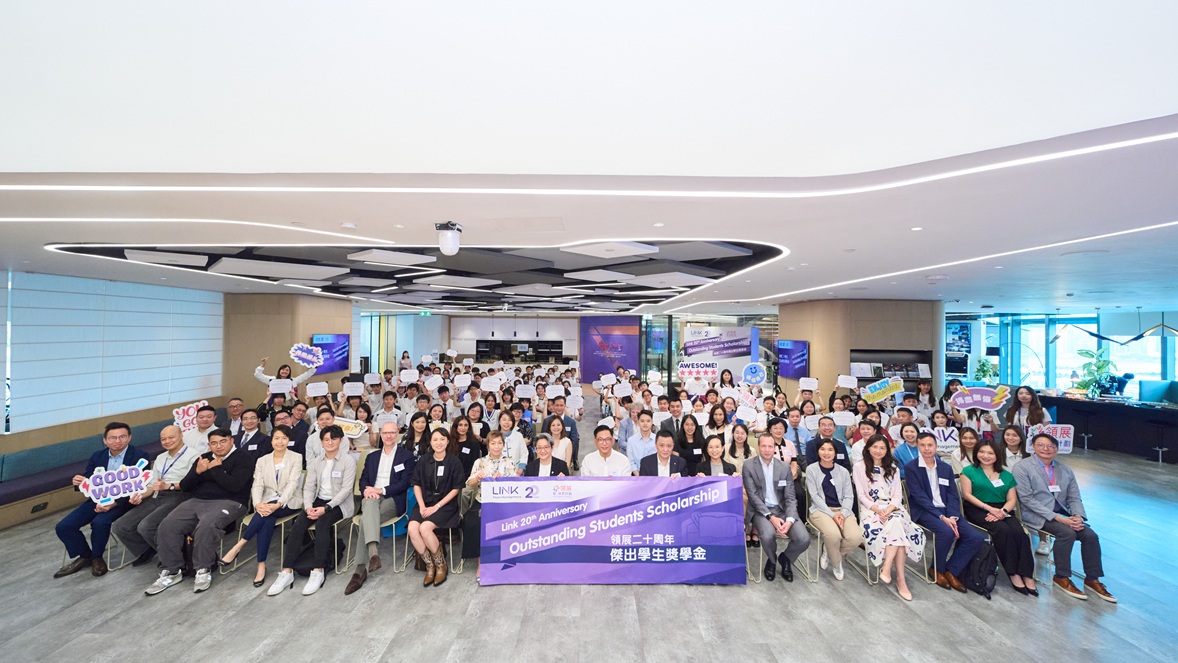
What can the next generation offer in response to the challenges of ageing societies? In early July, a group of 30 secondary school students – recipients of the “Link 20th Anniversary Outstanding Student Scholarship” – demonstrated how youthful creativity and compassion can illuminate the path towards more inclusive communities.
This year, marking the 20th anniversary of its public listing, Link extended its scholarship programme to secondary school students. After a series of rigorous selection rounds, 30 finalists were challenged to develop fresh, thoughtful solutions aligned with the theme “Active Ageing Communities” to improve quality of life for older adults. The students presented their ideas in a series of interview sessions, with five participants ultimately recognised for the creativity and practicality of their concepts. More than a competition, the initiative offered a platform for young people to act as changemakers, proving that community innovation can begin with youthful insight.
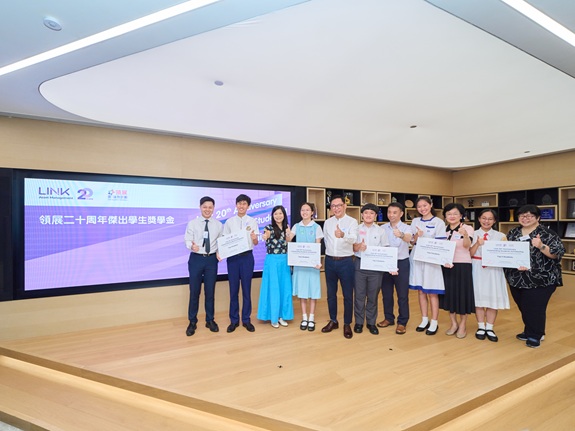
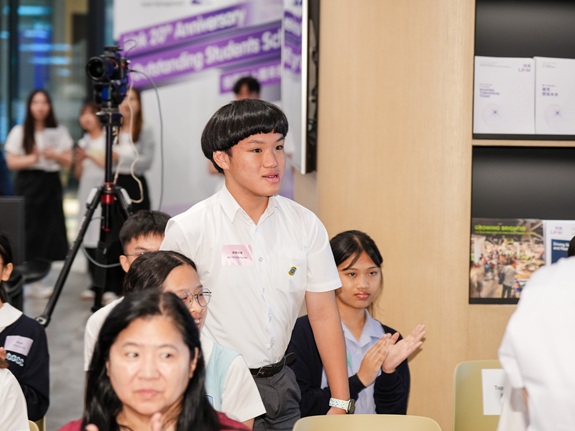
Among the top five winners was Au-Yeung Yu-hei, a student from Buddhist Tai Hung College. Reflecting on his achievement, he said, “Winning the scholarship was both unexpected and thrilling. This experience has given me a deeper understanding of the challenges faced by older adults and has strengthened my resolve to help improve their quality of life.”
Yu-hei’s winning concept, the “White Cut Chicken Soft Meal”, supports seniors with swallowing difficulties by providing a nutritious, flavourful meal they can safely enjoy. “I spoke with more than 30 seniors and discovered a glaring lack of soft meal options,” he explained. Through the scholarship programme’s design thinking workshop, he learnt feasibility assessment and project planning techniques, which enabled him to transform a compassionate idea into a realistic and actionable solution.
Principal Chiu Hong-ming of Buddhist Tai Hung College praised the programme’s educational value: “I hope to see more initiatives like this, allowing students to engage with their communities from a young age. It’s a powerful model for cultivating socially responsible citizens and the leaders of tomorrow.”
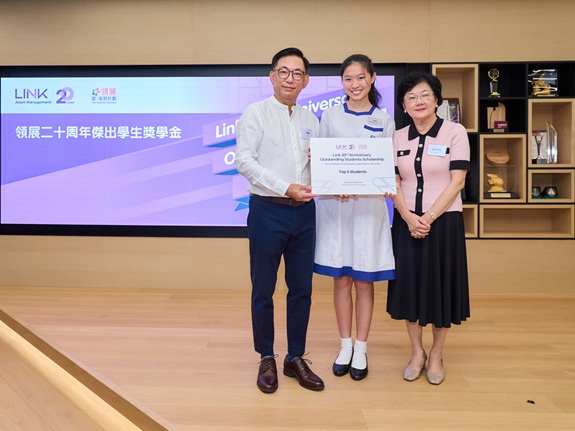
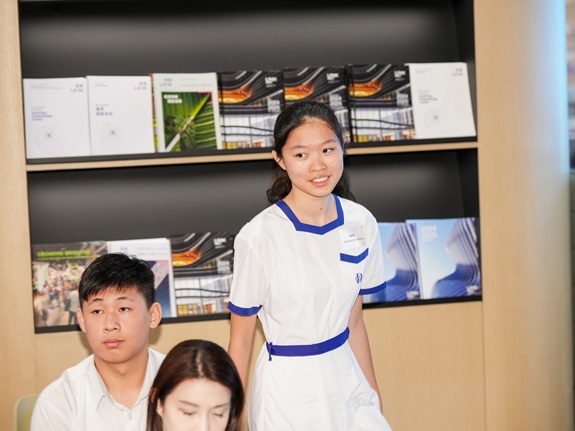
Another top-five scholarship recipient, Leung Kam-yan of Diocesan Girls’ School, proposed installing hydroponic growing systems in public parks to engage elderly residents in purposeful outdoor activities. “Beyond rejuvenating communal spaces, this initiative offers seniors an opportunity to reconnect with nature and participate in hands-on, meaningful routines,” she remarked. “The concept was inspired by my volunteering experience with hydroponics. Through this project, I hope to help elderly individuals rediscover a sense of purpose and accomplishment.”
To deepen her understanding, Kam-yan spent a week interviewing seniors in neighbourhood parks, gathering first-hand perspectives on their interests, needs and aspirations. Her proposal exemplifies how observation and empathy can lead to creative, actionable solutions that foster intergenerational connection.
Headmistress Stella Lau of Diocesan Girls’ School expressed immense pride in her student’s achievement, saying, “Link’s scholarship programme is tremendously valuable for youth development. Today’s students are engaging with real societal challenges at an earlier age, which marks a significant and encouraging shift in education.”
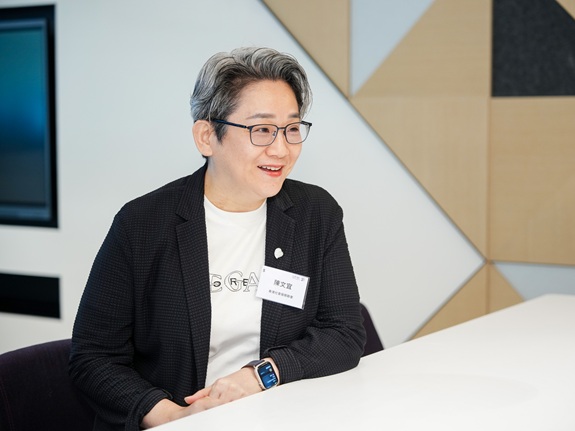
Grace Chan, Chief Executive of the Hong Kong Council of Social Service and a member of the scholarship programme's judging panel, expressed her admiration for the finalists' exceptional qualities. “These remarkable young scholars are not just focused on academic success or extracurricular involvement,” she said. “They are actively engaged with their communities and show a strong awareness of the diverse needs of our aging population, providing innovative and actionable solutions.”
Grace specifically commended the students for their ability to blend empathy with practical thinking. “They demonstrated a level of understanding that is impressive for their age,” she remarked. “They not only recognised the challenges faced by the elderly but also understood how technology can turn compassion into effective, real-world initiatives.”